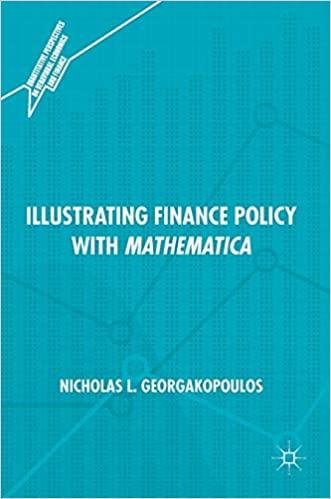Question
Bread Basket Pty Ltd was equally owned by Daley Bread and Whyte Bread, two brothers. On 1 July CY the brothers had bought out their
Bread Basket Pty Ltd was equally owned by Daley Bread and Whyte Bread, two brothers. On 1 July CY the brothers had bought out their two sisters who had owned the other 50% of the company. The company operated 3 bakeries which sold bread and pastries. In addition to sales over the counter the bakeries ran accounts for a number of restaurants. Accounts were sent out after the end of each month and were usually paid within a fortnight.
The company had a net profit for the year of $250,000 after the following income and expenses were taken into account:
Income $
Cash received 930,000
This included $22,000 which was outstanding from the previous year. Outstanding accounts for the current year were $35,000.
Dividends received:
25 August CY National Bread Delivery Pty Ltd 20,000
Franking credits attached - $5,000
15 April CY Flour Manufacturers Pty Ltd 15,000
Franking credits attached - $6,429
Expenses
Accounting fees 32,000
Bank fees 4,900
Donations to Red Cross and Amnesty Australia 15,000
Interest. Interest on business loans totalled $1,500 per month and were paid monthly until 1 March CY when 6 months interest was prepaid. 21,000
Legal expenses:
Retainer 5,000
Lease of factory premises 500
Borrowing expenses for 6 year loan taken out on 30 November CY. Interest on this loan was capitalized so there were no loan repayments in the current year for this loan. 800
Provision for annual leave and long service leave 60,000
Purchase of materials 350,000
Travelling expenses:
Daley Bread traveled to a Small Business Conference in Sydney. His wife traveled with him and attended some of the social functions organised by the conference organisers. Daleys costs were 70% of the total expenses paid by the company. The remainder related to his wife. 5,100
Wages to staff 500,000
Superannuation for staff 45,000
Notes:
Actual leave taken by staff was $93,000.
Purchase of new office on 1 June CY for $340,000. The building had been constructed on 1 April 2003 at a cost of $100,000.
Write off of bad debt of $2,800 on 15 June CY. The debt arose from sales to a restaurant in the previous year. The restaurant had gone out of business and there was going to be no return to unsecured creditors.
The following PAYG (Instalments) or refunds received were paid or received during the year:
$
28 July CY 4th instalment of PY tax 3,200
28 October CY 1st instalment of CY tax 15,800
30 November CY refund of PY tax 840
28 February CY 2nd instalment of CY tax 14,200
28 April CY 3rd instalment of CY tax 16,800
28 July FY 4th instalment of CY tax 23,000
The company paid two dividends during the year. The first totalled $35,000 and was franked to 100%. It was paid on 1 July CY. The second dividend was paid on 1 December CY. The dividend totalled $60,000 and was franked to 30%. The balance in the franking account at 30 June PY was a debit of $2,000 which was paid on 28 July CY.
Required:
Using the reconciliation method, calculate the taxable income and the net tax payable of the company for the year ended 30 June CY assuming the company wished to minimise its taxable income but did not wish to use pooling for depreciation purposes and did not wish to use SBE elections. Treat them as a non BRE
Set out the franking account for the company for the current year including any franking additional tax or franking deficit tax which may be payable.
Step by Step Solution
There are 3 Steps involved in it
Step: 1

Get Instant Access to Expert-Tailored Solutions
See step-by-step solutions with expert insights and AI powered tools for academic success
Step: 2

Step: 3

Ace Your Homework with AI
Get the answers you need in no time with our AI-driven, step-by-step assistance
Get Started


